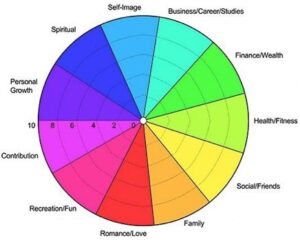
The Post-Holiday Slump: Your Mental Health
The Post-Holiday Slump: Your Mental Health
As the holidays come to an end, many people notice an unexpected shift in their mood. The decorations come down, routines resume, and the emotional intensity of the season fades—often leaving behind feelings of sadness, fatigue, or lack of motivation. This experience is commonly known as the post-holiday slump, and it affects people of all ages and backgrounds.
While the post-holiday slump is common, it can feel isolating if you don’t understand why it’s happening or how to respond. The good news is that with awareness, support, and intentional care, this transition period can be managed in a healthy and compassionate way.
What Is the Post-Holiday Slump?
The post-holiday slump refers to a temporary decline in mental and emotional well-being following the holiday season. Unlike clinical depression, it is typically short-term, but that doesn’t make it insignificant. Many individuals in the Lake Norman and Cabarrus County areas report feeling “off” in January and early February without knowing exactly why.
Common symptoms of the post-holiday slump include:
- Low mood or emotional flatness
- Increased anxiety or irritability
- Fatigue or lack of motivation
- Difficulty concentrating
- Changes in sleep or appetite
For some, these feelings resolve naturally. For others—especially those already managing stress, anxiety, or grief—they can linger and intensify.
Why the Post-Holiday Slump Happens
There are several reasons the post-holiday slump is so prevalent, particularly in busy communities like Mooresville, Concord, and Denver, NC, where families juggle work, school, and caregiving responsibilities.
work, school, and caregiving responsibilities.
Loss of Anticipation and Routine
The holidays provide structure, excitement, and something to look forward to. Once that ends, daily life can feel monotonous or empty by comparison.
Emotional Aftereffects
The holidays often bring up complicated emotions—family dynamics, grief over loss, financial stress, or loneliness. When the distractions end, those feelings may surface more clearly.
Burnout and Exhaustion
Travel, social obligations, end-of-year deadlines, and caregiving demands often leave people physically and emotionally drained going into the new year.
Seasonal Factors
Shorter days, less sunlight, and colder weather in North Carolina can also impact mood and energy levels, compounding the emotional slump.
How the Post-Holiday Slump Affects Mental Health
The post-holiday slump can impact both emotional and physical well-being. You may notice:
- Increased stress or anxiety returning after time off
- Difficulty re-engaging with work or school
- Feeling disconnected from others
- Questioning motivation, purpose, or direction
For individuals already receiving therapy or considering counseling in Mooresville, Concord, or Denver, this season often brings increased awareness of unmet emotional needs.
Healthy Ways to Cope With the Post-Holiday Slump
Supporting your mental health during this transition doesn’t require drastic change. Small, consistent steps can make a meaningful difference.
Normalize Your Experience
First, remind yourself that what you’re feeling is common. Emotional shifts after major life events—or seasons—are part of being human.
Rebuild Gentle Structure
Rather than forcing productivity, focus on creating simple routines: regular meals, consistent sleep, brief movement, or quiet moments to reset your nervous system.
Stay Connected
Connection is a powerful protective factor for mental health. Reach out to a trusted friend, family member, or therapist instead of isolating when motivation feels low.
Set Realistic Expectations
January does not have to be a “fresh start” or a complete reinvention. Healing and motivation often return gradually, not all at once.
Seek Professional Mental Health Support
If feelings of sadness, anxiety, or emotional numbness persist for several weeks or begin interfering with daily life, counseling can provide support, clarity, and coping tools.
When the Post-Holiday Slump Signals Something More
Sometimes the post-holiday slump is more than just a temporary dip. It may indicate underlying concerns such as:
- Depression or anxiety
- Unresolved grief or loss
- Chronic stress or burnout
- Difficulty with life transitions
Mental health counseling provides a safe, supportive space to explore these patterns and develop strategies that promote long-term emotional wellness.
Mental Health Counseling in Mooresville, Concord, and Denver, NC
Local mental health support matters. Working with a therapist who understands the pace, stressors, and community dynamics of Mooresville, Concord, and Denver, NC can help you feel seen and supported during difficult seasons.
Therapy can help you:
- Process post-holiday emotions
- Manage anxiety or low mood
- Rebuild motivation and balance
- Strengthen coping skills
- Improve emotional connection and self-awareness
You don’t have to wait until things feel overwhelming to seek help—early support often leads to more effective outcomes.
Moving Forward With Compassion
The post-holiday slump can feel discouraging, but it doesn’t define you or your year ahead. With patience, connection, and the right mental health support, this season can become an opportunity for reflection, grounding, and renewed emotional stability.
If you’re struggling during the post-holiday season in Mooresville, Concord, or Denver, North Carolina, reaching out for counseling support can be a meaningful step toward feeling more like yourself again.
Learn More

Media and it’s Affect on Mental Health
Current Events Affect on Your Mental Health
It’s that moment in the day where you finally get to pause, breathe, and check your phone. You open your phone, just to check your social media accounts or maybe even the top headlines. Ten minutes later, you’re staring at a feed of disheartening stories… conflict zones, natural disasters, political strife, climate emergencies. You feel tightness in your chest, numbness creeping over your thoughts. You are now experiencing the weight of the world…literally.
The Unseen Weight of Continuous News Streams
Streaming news in real time gives us a front-row seat to global turbulence. Simultaneously, that access comes with a cost: our brains were never meant to handle never-ending, high-arousal input. Each alert, breaking headline, or urgent push notification triggers our stress response, a cascade of cortisol, adrenaline, heart-rate spikes. Over time, this becomes chronic, not episodic.
Are you familiar with the terms doom scrolling or media fatigue? This is a kind of emotional exhaustion caused by relentless information consumption. Studies show that even brief exposure to negative news can increase feelings of anxiety, sadness, and helplessness. Over the past years, research has linked frequent news exposure to higher symptoms of depression and anxiety.
One study published in Nature Human Behavior found a bidirectional loop: individuals who were already struggling with mental health symptoms were more likely to gravitate toward negative content and viewing that content, in turn, worsened their mood. Ultimately, this feedback loop can feel like you’re spiraling but powerless to stop it. (MIT news, 2024)
Why We Keep Watching Even When It Hurts

You might wonder: “Why is this so hard to break, even when I know it’s harming me?” The answer lies in how our minds are wired.
- Negativity Bias: We’re biologically programmed to pay more attention to bad news… it’s how we survive. Our brain highlights threats and risks, which means that negative stories dominate our emotional landscape.
- Uncertainty and Vigilance: In chaotic times, we cling to news as a way to feel in control, to anticipate what’s next. That urge to stay “informed” can draw us deeper into the stream.
- Reward Loops: Algorithms are built to keep us engaged. Sensational or alarming content increases engagement, so platforms feed us more of it.
Over time, your brain starts treating the news feed like a stress drug pulling you back even when you know it hurts.
When Streaming News Becomes a Wound That Must Be Healed
This constant exposure doesn’t just leave you weary it changes your mental health landscape:
- Heightened Baseline Stress: You begin to live in a low-grade state of tension. Your worries about the world bleeds into your personal life.
- Emotional Numbness: When the news is always grim, your ability to feel joy or hope can dull.
- Sleep Disruption: Late-night news checking interrupts rest, making it harder to recover emotionally.
- Increased Therapy Demand: Feeling a burning or increased desire of “I need to talk to someone about this.”
Intentional Strategies to Reclaim Your Well-Being
If you’re reading this, you’re already asking the right question: How do I protect myself without entirely shutting out relevant news? Here are practices that many clients and mental health professionals are finding useful:
- Designate News Windows
Instead of consuming nonstop, commit to one or two fixed “news check” periods daily. Give yourself permission to disengage outside those windows. - Choose Depth Over Speed
When you do get news, prefer measured articles or summaries rather than live alerts or clickbait video feeds. You’ll get context without the emotional jolt. Turn off push notifications. - “Worry Buffer Time”
After handling news, schedule ten minutes to name what’s worry-worthy, journal, process it, then move on. This helps your brain compartmentalize. - Anchor in the Tangible
Grounding practices: taking a walk, calling a friend, gardening, breathing exercises, etc. can help you step out of the loop of rumination and reclaim your body. - Media Fast or Minimalist Days
Allocate one day (or part of a day) each week to abstain from news entirely. Let that space refresh your inner resources. - Use Filters and Trusted Sources
Select a handful of reliable outlets. Turn off push alerts unless absolutely necessary. Let curated news be your gateway as opposed to relentless streams. - Bring It to Therapy
Acknowledge how certain topics affect your mood and make them part of the emotional narrative we explore together.
Why Therapy Matters
With streaming news weaving into our lived realities, emotional reactions to world events are no longer separate from personal struggles. A therapist can:
- Hold space for grief, fear, and overwhelm when friends may not have capacity.
- Help you build boundaries and regain agency over your attention.
- Work on cognitive tools to disrupt rumination when news hooks you.
- Support you in differentiating what’s within your control and what isn’t.
Therapy is like a map: it encompasses several different avenues to get you to a place of peace. The goal is for you to graciously care about the world without being consumed by it. You can stay informed, compassionate, engaged, and still protect your fragile mind.
Request to Work with a Therapist
If the weight of the world is starting to feel heavy, it may be time to lean on support. Therapy isn’t just talking, it’s how many of us learn to live in a world that never stops turning. And sometimes the most powerful activism is caring for your own human self.
Learn More

Ditch the Resolution – Start 2022 with a Life Audit!
Resolutions are a thing of the past. No one keeps them, and we talk about them as if they are motivating but really they are a wasted effort if we are not fully taking stock of our entire selves. When we assess what changes we actually need to make, we are able to make the most out of efforts to increase our overall life happiness. Today we want to suggest an alternative…. completing your own life audit. Essentially what a life audit does is to help you take stock of where you currently stand in self-fulfillment in multiple areas of your life. This audit will explore multiple areas of your life and help you to determine improvements and changes each one of those areas can benefit from. A life audit is a great reflective exercise that helps you to see where you are doing well in life and acknowledging that.
Where do I start?
When you are ready to complete your own life audit, I would recommend breaking your life down into categories or segments of living. Your breakdown could take the form of a wheel such as this:
Other layouts can include columns, a box design, or just free writing! Remember, this is YOUR audit, so you can make it as simple or complex as you would like! Once you have your design, we want to begin by labeling the primary areas of your life. Below are a few example categories that you can use to get started:
Primary Categories
- Physical Health
- Emotional Health
- Spiritual Health
- Occupational Health
- Community/Social Health
- Financial Health
- Recreational Health
Once you’ve chosen your categories, now is the time for self reflection. Beginning one section at a time, what are your initial thoughts? What are doing well in that area, and what goals do you still have? Put any and everything down about that category you can think of. It can also be helpful to decide how to quantify your level of satisfaction. Some people use a numerical scale, or even an alpha grading system (A, A-, B, B+, etc). If you find yourself struggling with how to determine your satisfaction in these categories, consider asking yourself the following:
- How is my Physical Strength, mobility, and energy in life?
- Job Satisfaction – does it match your personal values, do you feel challenged?
- Career Progress – are you where you believed you would be in your career at this stage in life?
- Net Worth – do I spend or save in the way I should? Should I be planning for a major life event such as retirement or a child going to college?
- Financial Knowledge – Do I understand my financial needs, now and in the future?
- Do I have the relationships with my family that I want?
- Am I committing enough time to friendships, or building friendships that I need?
- Do I have a connection with my community? Do you have an interest in giving back?
- How is my love life? Do I have a relationship with my partner that is enjoy?
- Is my Self-Image healthy and realistic? Do I appreciate myself and have a motivating internal narrative with myself?
- Are you participating as often as you would like in your faith?
- Habits, Fun & Leisure – What is there to add, take away, or change?
- Personal Growth – As you walk through your life, what more do you still want to learn, do, or experience?
Ok, So How did I do?
This is designed to be a simple exercise, but there are a few things to keep in mind:
Be honest
This is the time to get real with yourself! Do not let yourself sugar coat or minimize your patterns, or real issues that need to be addressed. Same for allowing yourself to gloat when it is deserved. If you are especially accomplished in an area of your life compliment yourself on that!
Take your time
This is such a great opportunity to dive deep into your life, so take your time with this. After writing, set it down for a period, then come back to it later. You may find that you have new reflections to add in.
Be prepared
With this honesty can come heightened emotions. Let’s stay aware, that emotions cannot hurt you but they are purposeful in the way that motivate and provide feedback that change is necessary!
Completed! Now what?
Now you have the information about yourself. Some of it is filled with praise and accomplishments, but other parts are acknowledgements of needs to be addressed. This last step is going to help you to engage yourself intentionally for 2022
Action Statements
Let’s take ACTION! Taking you next moments to identify what you can do is your next step. However, there is a really important small step to take first. There are parts of our emotional unhappiness that we cannot change and you will have to be on the lookout for that. For example, a chronic health problem is most likely identified as a negative in a category. Since you are unable to change that, you will have to examine what elements of it you do have control over, such as an exercise regime or diet change which helps to alleviate some of your symptoms. Seeing elements of what we CAN do is an important process in this step. Once you understand this we can now formulate your action statements. Using concrete language which includes the what, where, when and who we write down specific steps to change. This helps you to form achievable and most importantly workable goals that actually give you specific steps to make lasting improvements on that category of your life.
Take the next step
Just get started! Choose the category that you feel most motivated to see a change in and begin with follow through with that action statement. You will notice an increase in overall happiness soon. To help yourself stay accountable, make a note on your calendar to check in on your progress quarterly throughout the year or speak with a therapist to see what is holding you back from attaining your goals. Those reviews are not meant to be opportunities to criticize what you haven’t done yet, but are chances to reinvigorate your intention for yourself for the year and to start again!
Learn More
Managing addiction issues in the holidays
Managing addiction issues in the holidays
The holidays are right around the corner. This is an exciting time of the year for many, but for those who struggle with substance use, the holidays can be challenging, stressful, and exhausting. The business of the holiday season, along with emotional stress that can come from family conflict, trauma, financial strain, or loneliness can lead those in recovery to resort back to poor coping strategies, making them more vulnerable to relapse.
For people struggling with addiction, the holidays are fraught with triggers and other aspects that can make maintaining sobriety difficult. Developing a strong sobriety plan to manage triggers goes a long way in helping a person be successful during this time. Isolation from family and others greatly contributes to people feeling depressed and looking for ways to cope. Finding support groups, such as AA, Celebrate Recovery, and Smart Recovery, to connect with during the holiday time can be a big support. Identifying warning signs of lapse, and making a plan for how to manage high risk situations ahead of time can also greatly increase a person’s chances for success.
We have put together some tips and strategies to help you safeguard your sobriety during the holidays:
Be Selective About the Invitations You Accept & Avoid Risky Situations
- Don’t feel obligated to accept every invitation you receive.
- Ask yourself: What is this event really about? Is this event appropriate for my stage of recovery? What are my motives for attending this event?
- Say yes to celebrating with people or in ways that are supportive of your recovery. This will give you peace of mind.
Limit Triggers
- Identify your triggers- Are they stress, specific environments, or certain people?
- Be aware of your own warning signs related to triggers, such as thinking patterns or unhealthy situations
- Take care of your basic needs (food, sleep, mood) to help you manage your triggers better
Have a Plan in Place
- Practice responses to triggering questions or stories from the past through role-play with a supportive friend or counselor
- Practice turning down substances or avoiding certain behaviors
- Consider bringing an accountability person to events with you
- It may be beneficial to arrive early and leave early to avoid potentially risky situations
- Bring your own safe food/beverages in order to have control over what you consume
- Have an escape plan. Make sure you would be able to leave at any time, if needed. Have your own transportation or means of escape.
Establish a Support System
- Reach out to sober friends or people who are understanding of your experience. Schedule an appointment with a therapist in advance to help make your holiday plan.
- Attend additional meetings with a counselor or support group during the holiday season.
Practice Mindfulness
- Be mindful about your attitudes and feelings about the holidays and adjust them when necessary. This may involve talking to a counselor or friend who understands addiction recovery. Be open, accepting, and positive at gatherings, instead of on-edge and defensive.
- Be mindful about what you’re consuming- keep a drink in hand that you have selected
Practice Self-Care
- Engage in stress-reducing activities during the holiday season. This may include, walking, hiking, biking, yoga, deep breathing exercises, meditation, or gentle exercise.
- Be sure to get enough rest and proper nutrition during the holidays
Try New Activities or Spend Time Serving Others
- This can help you avoid triggers and give you some good alternatives to former habits during the holidays.
- New activities may include cooking meals or baking with friends, watching holiday movies, experiencing nature, etc.
- Serve a meal at a homeless shelter or volunteer at non-profit organization.
Seek Additional Treatment if Needed
- There is no shame in going to rehab during the holidays if it protects you from harmful situations.
Remember that recovery is a one-day-at-a-time endeavor, regardless of the season you are in!
If you need additional help during the holidays, the Substance abuse and Mental Health Services Administration’s National Helpline is 1-800-662-HELP (4357).
Learn More

